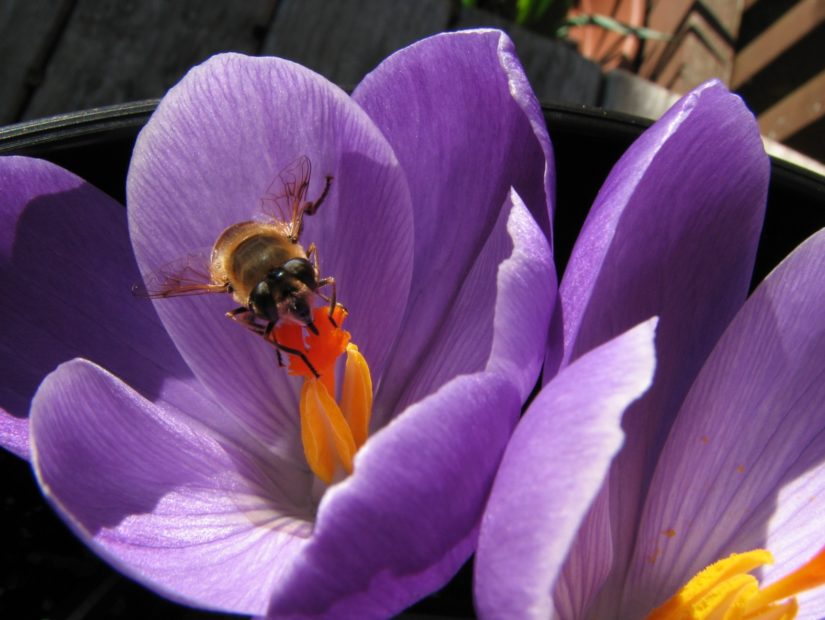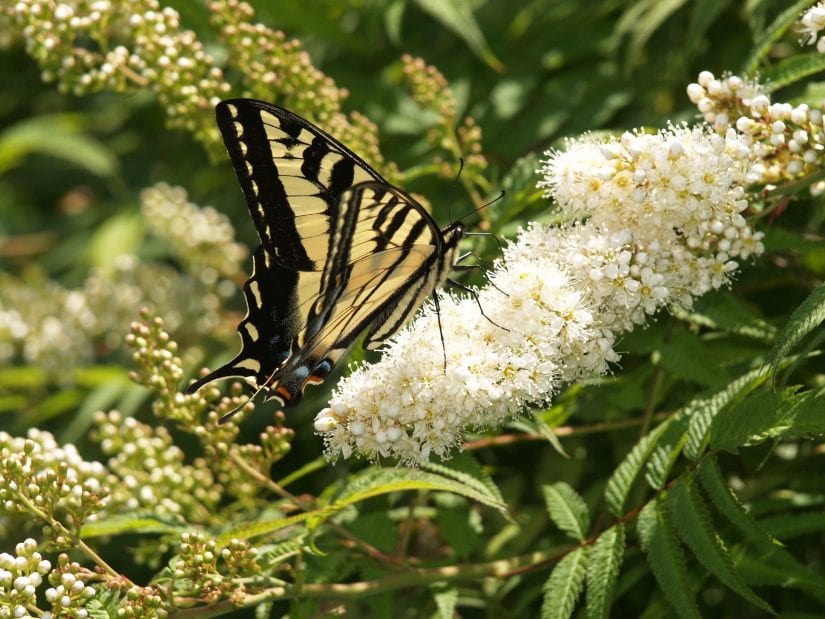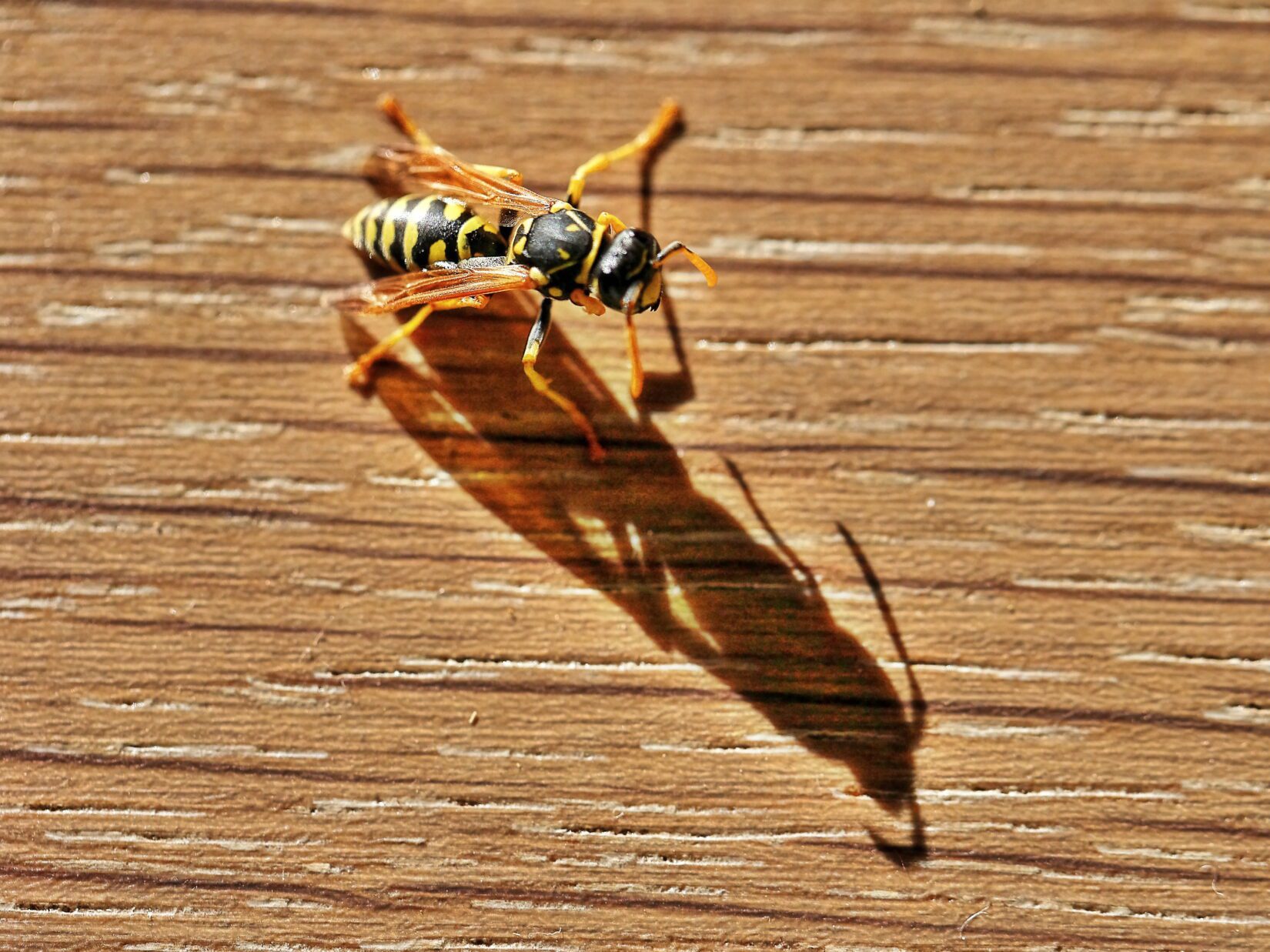As we head outside to tend our yards and gardens, an unseen — and often underappreciated — world of work is happening all around us. Beneath our feet and overhead, insects of all kinds are busy helping to propagate and protect plants.

“There’s an astonishing diversity of insects here in British Columbia,” says Nadia Xenakis, BC SPCA wild animal welfare specialist. In fact, our province is home to an estimated 30,000 to 40,000 different species, and each has an important role to play in the ecosystem. Some, such as ladybugs and lacewings, help defend plants by eating the insects that feed on them. Others, such as bumblebees and swallowtails, help plants reproduce through pollination.
Knowing what roles insects play can help us design and maintain our green spaces in a more natural — and environmentally friendly — manner. “We can support beneficial insects by making our yards and gardens more attractive to them,” says Xenakis. “Once there, they’ll do the work for free!” She suggests the following strategies to bring on the bugs:
- Think local. Choose native plants adapted to your local climate. This attracts native insects who, in turn, attract other helpful native wildlife species such as birds.
- Diversity is key. Different plants attract different insects. Having a variety also ensures that food is available to insects at different times of year.
- Think in 3D. Provide horizontal and vertical plant structure (e.g., herbs, shrubs and trees) to create a choice of microclimates and provide insects with shelter from inclement weather.
- Say no to drugs. Even pesticides with low toxicity, such as soap, can still harm beneficial insects.
- Tidiness is overrated. Let an area ‘go wild’ with grasses, weeds, wildflowers, logs and brush, and allow leaves to pile up for insects to hide, nest and overwinter in.
- Water woes. Insects need water, too! Provide some in a shallow dish filled with rocks to keep them from drowning.

Ultimately, attracting beneficial insects will help reduce our reliance on chemicals and boost our biodiversity. “Many insects are already hard at work in your yard or garden,” says Xenakis. “Why not do what you can to encourage them?”
Wasps up with wasps?
Bees often get all the credit as critical pollinators – but wasps are just as important to a healthy ecosystem! Wasps play an essential role as pollinators, and have equally complex social lives as bees. They also serve as valuable predators – keeping other potential “pest” bug populations in check.
Wasp larvae need lots of protein, which they get from adults bringing back to the colony. In turn, the adults feed off the sugary secretions of the larvae. By late summer when the larvae are grown, all those adult wasps need to find new sources of sugar. Unfortunately, this is also a time when humans are doing lots of eating and drinking outdoors!
Prevent trouble with wasps by keeping drinks and food covered, and cleaning up messes and spills right away. The longer it sits out, the more likely it is to attract wasps and other insects.

Prevent wasps from nesting nearby with these tips:
- Keep garbage cans, compost bins and recycling containers clean and closed
- Mix several drops of clove, geranium and lemongrass essential oil with water and dish soap into a spray bottle – spray on potential nesting areas, such as under roof eaves, to deter them
- Hang a decoy wasp nest (or try a paper lantern) to deter new nest building
- Place peppermint-oil soaked cotton balls under roof eaves – in areas away from pets
WildSense newsletter
Want to receive more stories like this, right in your inbox? Subscribe to WildSense, our bi-monthly wildlife newsletter.
The BC SPCA uses your personal information to update you on our work for animals as well as for advertising and analytics purposes. More information on uses and how to opt-out can be found in our Privacy Policy.
